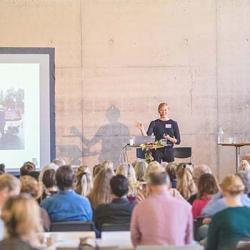Segregation - its expansion, causes and consequences
There is a lot written about segregation, but it is difficult to get an overview of the knowledge. Therefore the project KAIROS, Knowledge about and Approaches to Fair and Socially Sustainable Cities, has written a concept paper and compiled the current knowledge base about segregation, its expansion, causes and consequences. The paper also outlines suggestions on possible actions. The purpose is to provide a base line for discussions about segregation and the link between segregation and the conditions for social justice and sustainable cities.
The knowledge base focuses primarily on segregation linked to residential segregation and young people's living conditions. The development in these two areas is interconnected and consists of mutually reinforcing processes. The common starting point in the discussion is that residential segregation leads to differences in young people´s living conditions and creates differences between schools. However, this also works the other way around, since the situation for children in a neighborhood generally, and in schools particularly, often is a decisive reason when families with children move to or from a neighbourhood.
The overall conclusion in this concept paper is that segregation affects boys' and girls' childhood conditions as well as men's and women's living conditions. But segregation does not only affect people at individual level but also at district level, city level and at a regional level. Thereby it also affects how the work towards socially sustainable cities is conducted. How segregation and its effects is a political issue where conflicting interests from various stakeholders must be handled.
It all boils down to political will. People's right to education, health , living conditions and housing can be found both in national legislation, international conventions on human rights and political adopted goals and policy documents. In the light of the knowledge base KAIROS will through its subprojects identify some of the barriers that exist in practice and try to answer why these laws, goals and policy documents are not lived by.
Download the Concept paper (In Swedish, summary in English)
Read more about the project KAIROS






